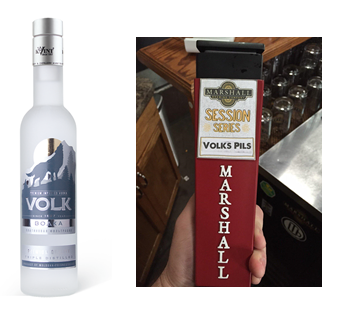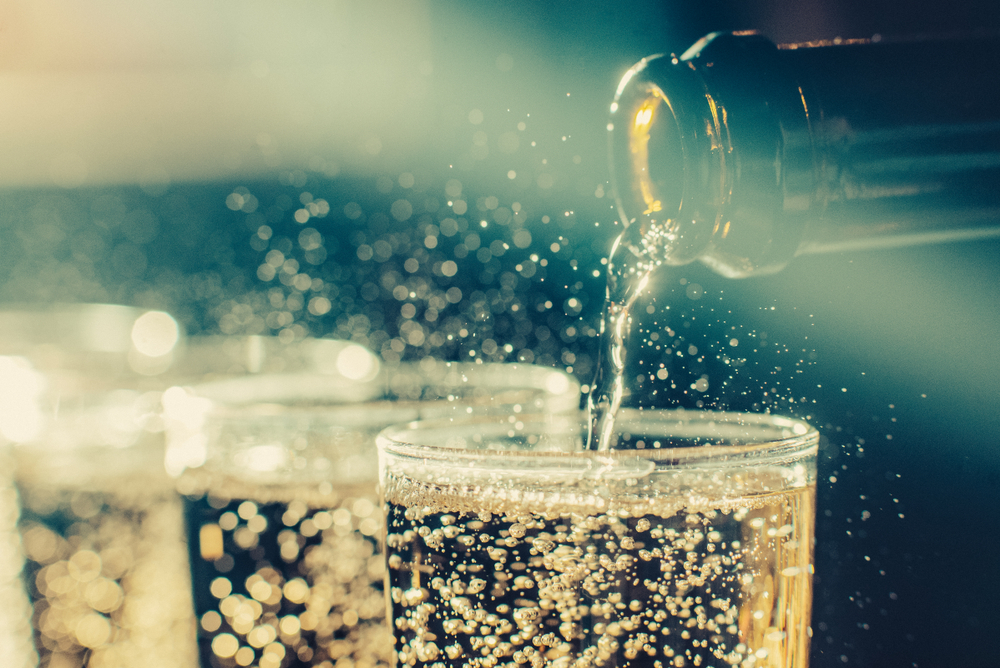Eat, Drink, and be Merry, but Don’t Confuse Your Beer’s Brand with a Vodka’s

Holding that a beer cannot be branded with a name identical or confusingly similar to the name of a vodka (unless they come from the same producer), in In re Marshall Brewing Company, LLC, the U.S. Trademark Office, Trademark Trial and Appeal Board (“TTAB”) held that VOLKS PILS for beers and lagers was confusingly similar to VOLK, the subject of a registration for vodkas. See accompanying photos of the two products. The TTAB thus upheld the Examining Attorney’s refusal to register VOLKS PILS. In the TTAB's opinion, the mere addition of the “s” to VOLK did not differentiate the marks. (The translations of the marks did not help the applicant’s case; both “volk” and “volks” are the German words for “folk” or “people,” although “volk” also means wolf.) Nor did the addition of the descriptive term PILS sufficiently distinguish the marks from one another. But the real import of the decision rested with the TTAB's conclusion that vodkas, on the one hand, and beers or lagers, on the other, can originate from the same source.
There was a time when the Trademark Office routinely registered similar names for different types of alcoholic beverages (wines vs. beers; whiskeys v. wines, etc.), but that time appears to be over. Relying upon Internet evidence and registrations showing that producers of one kind of alcoholic beverage (in this case vodkas) may also be the source of another (in this case beers), the TTAB has found consumers are likely to be confused when the brand names are similar. This is because the test of infringement is a common sense one: would a consumer assume one beverage (in this case a beer or lager) might come from the same producer as another (in this case a vodka)? The TTAB has said “yes,” although it is much less likely to find consumer confusion when nonalcoholic beverages are branded with names the same or similar to the those of alcoholic beverages. A notable exception to this rule is the famous brand – for example, COKE and PEPSI. In the case of a brand of such renown, an alcoholic beverage maker should look elsewhere rather than risk a claim of “dilution” by the famous brand owner. A dilution claim hinges on a showing that consumers’ exclusive source association of, for example, COKE or PEPSI with a single source of a pop soda, would be diminished if a wine, beer, vodka, or other alcoholic beverage maker adopted these marks.
The take-away: in the case of alcoholic beverages, the TTAB has found similar names cannot exist without consumer confusion unless the producers are able to differentiate their target customers (who may not exercise care or sophistication in their purchase of these products) or trade channels. And don’t pick a name for your alcoholic beverage identical or similar to that of a famous nonalcoholic beverage brand. Before adopting a brand name and applying to register it with the Trademark Office, first make sure you have an attorney commission a clearance search for the name of your choice for all categories of beverages--alcoholic and nonalcoholic alike.




